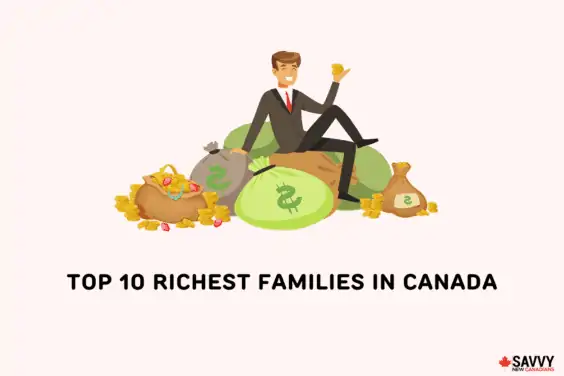Ever dreamed of ditching work for a life of your dreams and purpose? It’s not just a fantasy—it’s the heart of financial freedom. But is that the same as financial independence? Let’s explore the differences and discover how each can lead to a life that’s truly yours.
Key Takeaways
- Financial independence entails living off your own income, not from a job.
- Financial freedom means living life on your own terms, where money is not a barrier.
- Achieving financial freedom involves setting clear goals, tracking spending, prioritizing saving, investing wisely, building diverse income streams, and actively planning for the future.
- You may need savings of 25-30 times your yearly expenses to achieve financial freedom.
Financial Independence Meaning
Financial independence means having the capacity to control your life and make decisions without relying on others. It involves having a steady income, paying bills independently, managing debt responsibly, building savings for emergencies, planning for retirement, and eventually investing for future financial growth.
Achieving financial independence requires actively working for income, covering expenses without external help, and gradually building a solid financial foundation.
While having debt is acceptable, it’s essential to work towards paying it off. Ultimately, financial independence empowers individuals to sustain their lifestyle throughout their lives.
How to Be Financially Independent
Achieving financial independence is a common long-term goal, varying based on factors like age, income, investing, and spending habits.
The journey to financial independence is unique for each person. Now, let’s explore the key steps to reaching this goal.
- Goal Setting: Determine your Financial Independence (FI) number by estimating retirement expenses, subtracting passive income, and multiplying the result by 25-30 for a 4% withdrawal rate.
- Budgeting: Create a budget, prioritizing savings and investments towards your FI goal.
- Expense Reduction: Cut unnecessary expenses, negotiate bills, and find cheaper alternatives to increase savings.
- Income Boost: Increase income through overtime, side jobs, or starting a business without compromising health or happiness.
- Debt Management: Develop a plan to pay off high-interest debt quickly, redirecting those funds to savings.
- Asset Investment: Invest in assets like stocks, bonds, real estate, or small businesses for passive income.
- Tax Optimization: Maximize contributions to tax-advantaged retirement accounts to increase savings and reduce taxes.
- Progress Tracking: Regularly review and adjust your budget and investment strategy to stay on track toward your FI goal.
Reaching financial independence demands discipline, patience, and strategic financial planning. Following these steps helps create a robust plan, granting you the freedom to pursue your passions and dreams.
Financial Freedom Meaning
Financial freedom is when you have enough money and stuff to live how you want without needing a regular job or dealing with debt. It’s about being in charge of your money, making choices that match your goals, and not being held back by money problems.
To get financial freedom, you might need to spend less, earn more, save and invest smartly, and get rid of debt. In the end, it means having enough money to live a happy life without always stressing about finances.
How To Become Financially Free
Financial freedom is more than just having money; it’s about creating a secure and fulfilling life. To embark on this journey, take the following steps:
- Diversify Income Streams: Explore side gigs or online ventures to boost earnings outside your main job.
- Invest in Yourself: Learn new skills or gain education to open doors to better-paying opportunities.
- Passive Income: Invest in rental properties, the stock market, or creative projects for steady income without constant effort.
- Strategic Investments: Build a diverse portfolio with stocks, bonds, and real estate, seeking advice when needed.
- Cultivate a Growth Mindset: Prioritize experiences over material success, embracing continuous learning for personal growth.
- Identify Opportunities: Be proactive in seeking income opportunities, step out of your comfort zone, and plan for a secure future.
Remember, financial freedom is a gradual journey. By following these steps and staying adaptable, you can build a life of security and freedom, unlocking a future filled with possibilities.
Related: How To Get Rich From Nothing
Financial Freedom Formula
Financial freedom, though abstract, can be achieved with formulas and strategies. It’s a personalized approach based on goals, risk tolerance, and time horizon.
Here are some key points to keep in mind:
- Start by understanding your finances, embracing a positive money mindset, and setting clear goals. Then, track your spending, prioritize saving while tackling debt, invest in experiences, and build an income stream beyond your job.
- It also involves investing 20% of your income in a diversified portfolio of stocks and bonds, rebalancing your portfolio annually, and avoiding high fees and commissions by investing in low-cost index funds.
- Finally, it is about taking ownership of your finances and planning your long-term financial situation by actively saving for a rainy day or retirement.
This is How Much Money You Need For Financial Freedom
Understanding the monetary aspect of financial freedom is crucial. This section aims to demystify the financial requirements for achieving a state of freedom and independence.
Some suggest having savings of 25-30 times your yearly expenses. For example, if your annual expenses in retirement will be $100,000, a savings of $2.5-3 million is recommended (lower when you account for pensions and government benefits).
Consider another example: if you’re 30, spend $50,000 annually, and aim for financial freedom by 50 (expecting to live till 85), you’d need about $1.25 million at 50, i.e. $50,000 x 25 (can be lower when you account for pensions and government benefits).
However, this might not cover all needs, like your children’s future post-secondary education, home purchases, irregular expenses, and unforeseen costs. It’s crucial to plan for these as well for a more secure financial future.
Related: How To Build Generational Wealth.
These Are the 5 Levels of Financial Freedom
Financial freedom isn’t the same for everyone. We’ll break it down into five levels and provide actionable steps for each one. This personal approach keeps you motivated and empowers you to take practical steps toward financial freedom.
Level One
At this stage, your active income is essential for survival, and without it, you couldn’t maintain your current living standards for more than a year.
- Monitor regular expenses closely.
- Cut down on unnecessary expenses.
- Convert reduced expenses into permanent savings.
- Allocate a specific percentage for monthly spending and savings.
Level Two
A more stable phase where spending matches earnings, with small savings for emergencies. Debt is nearly paid off, reducing stress and obligations.
- Continue Level One strategies.
- Work towards creating passive or side income.
- Prioritize spending on needs over desires.
Level Three
A secure financial stage where you could survive for a year or longer without active income. Both main and passive incomes exceed expenses.
- Invest in emergency cushions like health and life insurance.
- Explore smart saving and investing.
- Plan for long-term financial goals.
Level Four
Financial control increases. Passive income grows, and wise investments lead to permanent freedom and independence.
- Focus on personal well-being and non-financial priorities.
- Strengthen passive sources, making them as reliable as active ones.
- Ensure investments remain diversified.
- Pay off all debt, including your mortgage.
Level Five
Supreme financial freedom, where you’re your own boss. You can live comfortably without a regular job, relying on alternate passive sources and long-term investments.
- Prioritize health as the greatest form of wealth.
- Consider reallocating funds between sources as needed.
- Work becomes fully optional.
- Increase your charitable giving.
Frequently Asked Questions
Absolutely. Cultivating a mindset of abundance and financial responsibility is a crucial aspect of attaining and maintaining financial freedom.
Embracing minimalism can simplify your life, reduce unnecessary expenses, and contribute to achieving financial freedom by focusing on what truly matters.
Financial security is about having a stable financial foundation, while financial freedom goes a step further, offering the flexibility to live life on your own terms without constant financial concerns.
Pursuing financial freedom provides the opportunity to design a life that aligns with your values, passions, and aspirations. It’s a journey that empowers individuals to break free from financial constraints and embrace a more fulfilling existence.
Related:



